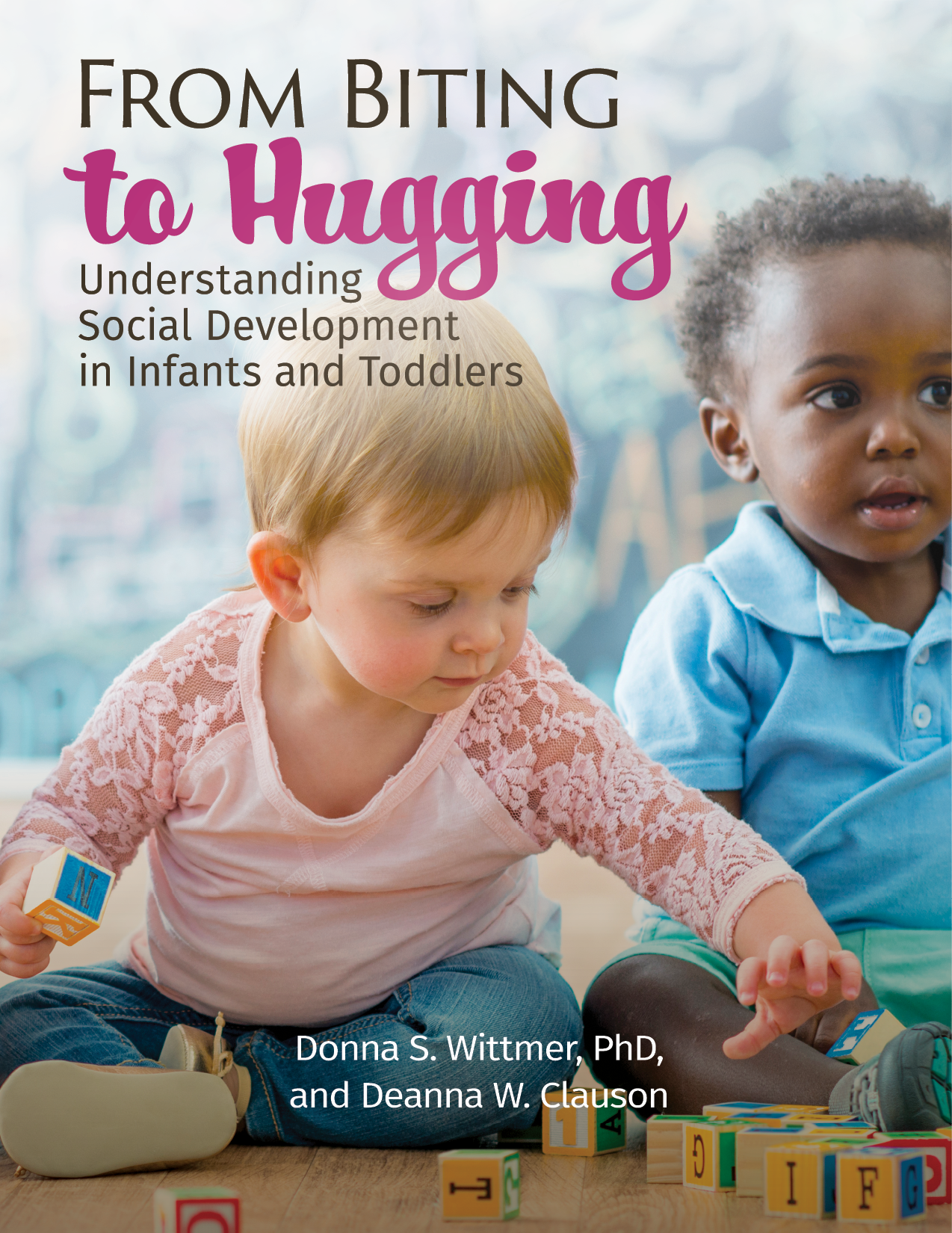Contents
Copyright
2018 Donna Wittmer and Deanna Clauson
Published by Gryphon House, Inc.
P. O. Box 10, Lewisville, NC 27023
800.638.0928; 877.638.7576 (fax)
www.gryphonhouse.com
All rights reserved. No part of this publication may be reproduced or transmitted in any form or by any means, electronic or technical, including photocopy, recording, or any information storage or retrieval system, without prior written permission of the publisher. Printed in the United States. Every effort has been made to locate copyright and permission information.
Cover photograph courtesy of iStockPhoto.com.
Library of Congress Cataloging-in-Publication Data
The cataloging-in-publication data is registered with the Library of Congress for ISBN 978-0-87659-740-8.
Bulk Purchase
Gryphon House books are available for special premiums and sales promotions as well as for fund-raising use. Special editions or book excerpts also can be created to specifications. For details, call 800.638.0928.
Disclaimer
Gryphon House, Inc., cannot be held responsible for damage, mishap, or injury incurred during the use of or because of activities in this book. Appropriate and reasonable caution and adult supervision of children involved in activities and corresponding to the age and capability of each child involved are recommended at all times. Do not leave children unattended at any time. Observe safety and caution at all times.
Dedication
We dedicate this book to infant and toddler teachers who continuously strive to support young childrens optimal social and emotional development. Your focus on childrens growth, development, self-worth, prosocial skills, and attitudes about learning makes a pivotal difference in whether children thrive. Your devotion to creating experiences and environments that promote positive relationships between teachers and children and among peers will have lifelong impacts. We hope this book gives you support for your important work helping children learn how to engage in loving relationships.
Acknowledgements
We especially want to thank our family members for their continuous support and encouragement as we wrote this book. They believe in the importance of the early years and thus inspired us to devote time to this important work.
Special thanks to Stephanie Roselli, our editor at Gryphon House, who constantly supported us with her expertise. Her sensitivity to the needs of the professionals in early childhood education thoughtfully guided the organization and content of the book. We could not have completed this book without her positive encouragement and constructive support.
Donna would like to thank Deanna Clauson for her contributions to this book. Her excellent writing skills contributed greatly to the articulation of the importance of parents and teachers emphasis on social development of infants and toddlers with peers for their present happiness and their future social competence. Deanna is in tune with the essential knowledge that infant and toddler teachers have and aspire to learn. She also was a joy to work with on the book.
Donna would also like to acknowledge Dr. Alice Honig, who continuously motivates me to continue learning and writing about infants and toddlers. It was with her as my professor at Syracuse University that I first began to understand the critical importance of the early years. Her mentorship and friendship are invaluable to me.
Deanna would like to thank Donna Wittmer for teaching her over a lifetime the value and richness of each interaction with young children. Donnas unwavering passion for and dedication to young children is deeply inspiring. Deanna would also like to thank Nathan and Rakaia for teaching her every day how to love, learn, and grow in her own social and emotional experiences.
Chapter ONE
The Many Reasons to Focus on Social Development with Peers in the Early Years

Interaction among children is a fundamental experience
during the first years of life.
Loris Malaguzzi, founder of the Reggio Emilia approach
Arent infants too little to notice other infants?
What do infants learn by being together?
The toddlers in my room are always grabbing things from each other. What should I do?
I saw a toddler give a crying child a toy. How can I help toddlers do that more often?
The two-year-olds in my room are always saying, Mine, when they are playing with a toy and another child approaches. Is this normal?
What can I do to help two-year-olds be kinder to each other?
I have a two-year-old in my room who screams when other children come close. How can I help her?
These types of questions are common among educators of infants and toddlers. Teachers and parents of young children are witnesses every day to an incredible period of development, when children are learning at every moment about how the world around them worksand how they fit into it. Teachers know how important relationships are, and they work tirelessly to ensure that children will be good at relationships.
We know that the relationships young children have with both adults and peers are the foundation of how they see themselves and relate to others for the rest of their lives. A childs social competencethe attitude and skill to enjoy being with others and to interact successfully with others to each persons satisfactionis central to healthy development.
What Is Social Competence?
The child:
- demonstrates a social, friendly attitude.
- jointly attends to something interesting with adults and peers.
- uses language or a communication system effectively.
- identifies emotions in herself and others.
- manages strong emotions and behavior (self-regulation).
- uses prosocial behavior, including demonstrating empathy.
- takes the perspective of others thoughts and feelings.
- uses conflict-resolution strategies, such as problem-solving skills, effectively.
This book shares important information and meaningful strategies that parents, teachers, and other educators of children ages birth to three can use to support infants and toddlers healthy social development and competence with peers. We divide the ages into three periods because children differ greatly in their peer development at these times. Infants (zero to twelve months) are aware and interested in each other. We see the beginnings of their enjoyment of and challenges with peers. Young toddlers (twelve to twenty-four months) are capable of kind, helpful, comforting behaviors toward peers and often enjoy them immensely and become friends; yet, they also engage in conflicts with their peers.
Older toddlers (twenty-four to thirty-six months) grow in their ability to relate, cooperate, negotiate, and play with their peers. These developments occur when families, teachers, and programs provide the kind of care and learning opportunities that children need to develop social competence.
We know that infants and toddlers are competent learners. They thrive when they experience learning within caring relationships with adults and peers. They are social beings who need compassionate social interactions and relationships to flourish. Healthy relationships with adults are the foundation from which they venture forth to learn about themselves and others. Within secure adult-child relationships, children learn that they are worthy of love and care, affection, and respect for their capabilities. They also learn how to live and love successfully with peers from their first relationships with adults. They learn empathy and how to take the perspectives of others. They become attuned to others needs and thoughts within parent-child and teacher-child relationships. These are challenging lessons to learn, and infants and toddlers learn them with you. They learn how to be care givers , not just care receivers (Kawakami and Takai-Kawakami, 2015).





